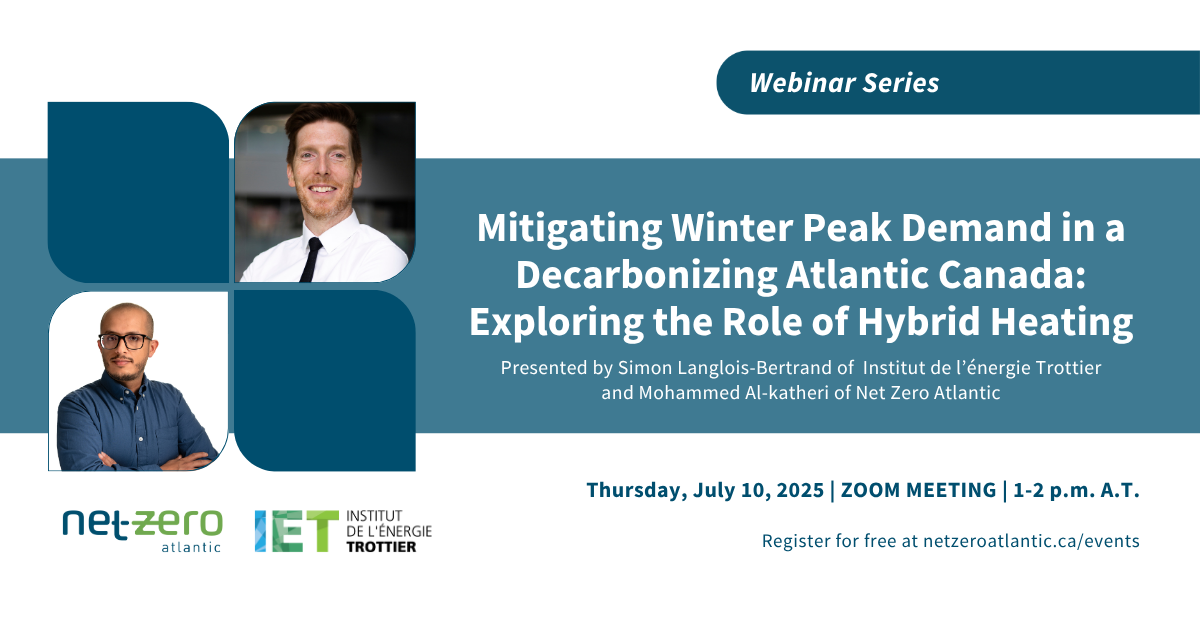Presented by Institut de l’énergie Trottier and Net Zero Atlantic
About the Webinar
Electrifying residential space heating is central to Atlantic Canada’s path to net-zero—but this shift also intensifies winter electricity peaks, especially during the coldest hours of the year. Without targeted planning, these peaks could drive costly infrastructure investments that are rarely used. This study, jointly led by Net Zero Atlantic and the Institut de l’énergie Trottier, explores how residential space heating electrification and population growth will impact electricity system infrastructure requirements, GHG emissions, peak demand, and overall system costs in the region.
To reflect real-world system stress during extreme cold, the study uses the Atlantic Canada Energy System (ACES) Model, which accounts for temperature-dependent heat pump performance and the activation of fuel-based or electric backup heating systems. It evaluates one specific mitigation option: hybrid heating systems, where a heat pump serves as the primary long-term heating solution, supported by a supplementary fuel-based system that operates during periods of peak demand. This approach helps meet heating needs without compromising reliability and reduces the risk of costly infrastructure overbuilds.
The webinar presents key findings and highlight how region-specific modeling can support locally informed solutions that align with Atlantic Canada’s energy needs, infrastructure, and climate realities.
About the presenters
Simon Langlois-Bertrand - Institut de l’énergie Trottier
Simon Langlois-Bertrand holds a Ph.D. in international affairs and degrees in political science as well as in industrial and computer engineering. He specializes in energy and environmental policy, and teaches political science and international relations at Concordia University, UQAM, the University of Ottawa, McGill University, as well as Carleton University.
He is the lead author of the Canadian Energy Outlook, and his work at the IET focuses on analyzing the political, technical and social challenges surrounding the transition toward net-zero societies. His versatility on issues related to net-zero transitions enables him to intervene frequently in the news media, as well as participate to various conferences and scientific popularization events. He also frequently collaborates with various other organizations and government departments.
Mohammed Al-katheri - Net Zero Atlantic
Mohammed Alkatheri has extensive experience in energy system modelling, serving as an Energy System Modeller at Net Zero Atlantic (NZA). At NZA, he manages updates and provides technical support for the Atlantic Canada Energy System (ACES) model, using it to explore "what-if" scenarios and assess the impacts of different decarbonization pathways. Mohammed holds a PhD in Chemical Engineering from the University of Waterloo, where his research applied big-data methods, such as machine learning, to optimize energy systems and chemical processes.

